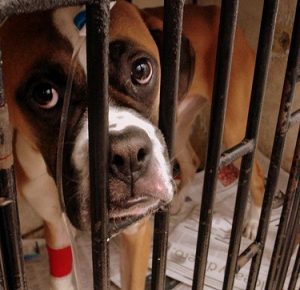While Addison’s Disease, also known as Hypoadrenocorticism is uncommon in cats, it is serious. It is brought on by insufficient amounts of cortisol and aldesterone, hormones produced by the adrenal glands.
Causes of Addison’s Disease include autoimmune problems, trauma, use of steriods, infection, internal hemorrhage, cancer and more.
Some symtoms mirror other diseases but can be weakness, lethargy, inappetance, increased thirst (polydipsia) and urination (polyuria), hair loss (alopecia), weak pulse, dehydration, vomiting, imbalance in electrolytes, sudden collapse. IF YOUR CAT COLLAPSES, SEEK IMMEDIATE VETERINARY HELP. A cat can sometimes have lowered body temperature and irregular heart rhythm. The heart can be smaller in size than is normal.
Cats can have intermittent bouts of symptoms. They can show signs for a time, seem to recover and then symptoms reappear.
Diagnosis is made by giving your vet your cat’s complete medical history. Urinalysis and blood tests will be administered along with chest x-rays and abdominal ultrasound. To confirm the diagnosis of Addison’s Disease, an ACTH (adrenocorticotropin hormone) test is administered.
Treatment depends on how far advanced the disease is and may require a hospital stay to administer fluids and cortisol replacement. Usually, life-long oral medication is given with regular blood and urine tests advised. Monthly hormone injections may be recommended as well as having electrolytes checked at the same time.
With regular treatment and owners adhering to veterinary recommendations, prognosis is good and the cat can do well.



